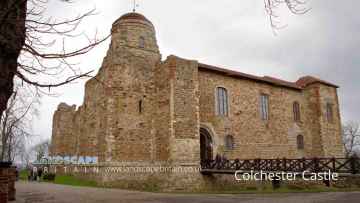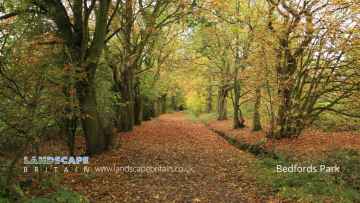Harwich
Harwich is a Town in the county of Essex.
There are great places to visit near Harwich including some great towns, castles, woodlands, airports, historic buildings, cities, villages, country parks, shopping centres, parks and nature reserves.
Harwich has some unmissable towns nearby like Colchester, Epping, Maldon, Southend-on-Sea, Saffron Walden, Braintree, and Basildon.
There are a number of castles near to Harwich including Colchester Castle.
The area around Harwich features a number of interesting woodlands including Epping Forest, and Bedfords Park.
The area around Harwich features a number of interesting airports including London Southend Airport, and London Stansted Airport.
The area around Harwich boasts some of the best historic buildings including Audley End House and Gardens, and Chelmsford Cathedral.
Chelmsford is one of Harwich's best, nearby cities to visit in Harwich.
Villages to visit near Harwich include Hatfield Peverel.
There are a number of country parks near to Harwich including Thorndon Country Park.
There are a number of shopping centres near to Harwich including Lakeside Shopping Centre.
There are a number of parks near to Harwich including Bedfords Park.
Nature Reserves to visit near Harwich include Bedfords Park.
Harwich History
There are some historic monuments around Harwich:
Places to see near Harwich
History of Harwich
Because of its strategic position, Harwich was the target for the invasion of Britain by William of Orange on 11 November 1688. However, unfavourable winds forced his fleet to sail into the English Channel instead and eventually land at Torbay. Due to the involvement of the Schomberg family in the invasion, Charles Louis Schomberg was made Marquess of Harwich. Writer Daniel Defoe devotes a few pages to the town in A tour thro’ the Whole Island of Great Britain. Visiting in 1722, he noted its formidable fort and harbour “of a vast extent”. The town, he recounts, was also known for an unusual chalybeate spring rising on Beacon Hill (a promontory to the north-east of the town), which “petrified” clay, allowing it to be used to pave Harwich’s streets and build its walls. The locals also claimed that “the same spring is said to turn wood into iron”, but Defoe put this down to the presence of “copperas” in the water. Regarding the atmosphere of the town, he states: “Harwich is a town of hurry and business, not much of gaiety and pleasure; yet the inhabitants seem warm in their nests and some of them are very wealthy”. Harwich played an important part in the Napoleonic and more especially the two world wars. Of particular note:




















